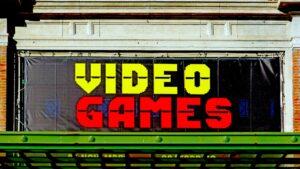The GameStop Stock Short Squeeze Explained: 5 Essential Points

SEO Meta Description: Learn how retail investors on r/WallStreetBets orchestrated the GameStop short squeeze, causing a 600% surge in stock value in this detailed five-point explanation.
Introduction
In early 2021, the financial world witnessed an unprecedented event: the GameStop short squeeze. This phenomenon not only sent shockwaves through Wall Street but also highlighted the rising influence of retail investors. Here’s an in-depth look at the five essential points that explain this dramatic surge.
1. Understanding the Short Squeeze
A short squeeze occurs when investors who have shorted a stock—betting that its price will decline—are forced to buy shares to cover their positions as the price unexpectedly rises. This buying activity further drives up the stock’s price, creating a feedback loop of increasing demand and price escalation.
“I borrow the stock from somebody… sell it for ten dollars on the open market… buy it back for six dollars.”
— Dan Giedeman, Grand Valley State University
In the case of GameStop, the short squeeze led to a 600% increase in stock value over just six days, exemplifying how quickly market dynamics can shift.
2. The Catalyst: r/WallStreetBets and Retail Investors
The subreddit r/WallStreetBets (WSB) played a pivotal role in initiating the GameStop short squeeze. With over 10 million active users, WSB became the hub for retail investors to coordinate and amplify their trading strategies. Motivated by a mix of FOMO (Fear Of Missing Out), nostalgia for companies like GameStop, and a collective desire to challenge Wall Street giants, these investors collectively pushed the stock price upwards.
3. The Mechanics: How the Squeeze Unfolded
Retail investors targeted GameStop, AMC, and other “meme stocks” that were heavily shorted by hedge funds. By collectively buying shares and options, they increased the demand and price, forcing hedge funds to cover their short positions at higher costs. This orchestrated effort not only drove up GameStop’s stock from $19 to $483 within days but also caused significant financial losses for institutional investors.
4. The Fallout: Impact on Hedge Funds and Financial Markets
Hedge funds that had large short positions in GameStop faced massive losses due to the short squeeze. The repercussions were felt across Wall Street, leading to a reevaluation of short-selling strategies and risk management practices. Additionally, platforms like Robinhood restricted the trading of GameStop and other volatile stocks, citing regulatory and liquidity concerns. This move sparked widespread outrage among retail investors, culminating in lawsuits and a tarnished reputation for the trading app.
5. Lasting Implications: Democratizing the Stock Market
The GameStop saga underscored the growing power of retail investors in the financial markets. By leveraging social media platforms, individual traders demonstrated their ability to influence stock prices and challenge established financial institutions. This democratization of trading has led to increased scrutiny of market regulations and a push for greater transparency and fairness in trading practices.
Conclusion
The GameStop short squeeze serves as a landmark event in financial history, illustrating the significant impact that coordinated retail investors can have on the stock market. By understanding the dynamics of short squeezes and the power of collective action, investors can better navigate the evolving landscape of modern finance.
Ready to dive deeper into the world of retail investing? Join our community today and stay informed on the latest market trends and insights!




